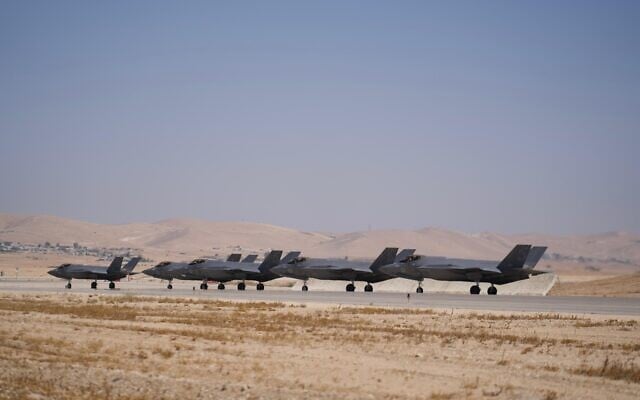
Last May, President Donald Trump’s Riyadh address shook expectations by delivering a sharp critique of decades of U.S. foreign interventions. Rejecting the long-standing bipartisan tradition of nation-building, Trump argued that such efforts frequently did more harm than good, highlighting the failures of trying to impose foreign governance on complex, divided societies.
This approach has since informed Washington’s posture in the broader Middle East. The U.S. ambassador to Türkiye, who also serves as the special envoy for Syria, reflected this reorientation by emphasizing local partnerships and regional cooperation over externally imposed solutions. The Trump-era doctrine sought to reduce America’s footprint in the region and avoid entanglements, a prerequisite for shifting focus to other global priorities.
Yet, Netanyahu’s government, along with its allies in the GOP and Senate, appears to misunderstand the president’s intent. Rather than aligning with the U.S. president, they openly advocate reshaping Iran’s governance, national identity, and very fabric, declaring it loud and clear.

Within the Republican Party, Israel’s strike has sparked a broader conflict. The traditional pro-Israel stance—long a fixture of GOP foreign policy—is now at odds with the isolationist sentiment among Trump’s MAGA base, which is wary of further entanglements.
https://x.com/charliekirk11/status/1933330290094809184
Tucker Carlson, a key figure in MAGA media, wrote that while Israel has the right to act independently, it should not rely on U.S. support. He argued that the United States must prioritize its own national interest, even if it means distancing itself from a longtime ally.
Prominent voices like Steve Bannon echoed these concerns. Speaking on his podcast, Bannon warned against being “dragged into a war on the Eurasian land mass,” underscoring the risk of mission creep in the Middle East.

Despite grassroots skepticism, top Republican lawmakers remain staunchly supportive of Israel’s military action. Sen. Lindsey Graham called the operation one of the most impressive in Israel’s history and urged full U.S. support if Iran rejects Trump’s diplomatic overtures.
“If Iran refuses Trump’s offer,” Graham stated, “I strongly believe it is in America's national security interest to go all-in to help Israel finish the job.”
Sen. Markwayne Mullin warned of severe consequences if Iran targets American personnel, affirming that Trump would respond forcefully if provoked.
Senate Foreign Relations Chair Jim Risch and Majority Leader John Thune framed the Israeli strike as a justified response to ongoing Iranian aggression, targeting the regime in Iran directly.
Although MAGA-aligned figures and voters have been vocal in their opposition, congressional staffers suggest their influence within legislative circles is limited. One chief of staff described these voices as being in a “bubble,” disconnected from the decision-making calculus on Capitol Hill.

Despite these intentions, key allies have pursued their own strategic paths. Israel’s military strike against Iran—launched despite Trump’s public encouragement for a diplomatic solution—revealed a significant fracture. Known as “Operation Rising Lion,” the strike reportedly inflicted severe damage on Iran’s nuclear infrastructure and military command, prompting retaliatory moves from Tehran.
Trump later claimed prior knowledge of the operation, but Israel’s action directly contradicted his earlier warnings against unilateral escalation.
Former Israeli Prime Minister Ehud Barak, speaking live on Friday, acknowledged the limitations of unilateral action, stating, “Israel alone cannot delay the nuclear program of Iran by a significant time period, but it can’t just sit idle.”
His remarks capture a deeper strategic unease within Israel: despite its military capabilities, it recognizes that only coordinated action with the United States could deliver a lasting impact. “Probably together with Americans we can do more,” Barak added, “however, neither Trump nor any of his potential predecessors can decide to go to a full-scale war with Iran.”
Despite both camps insisting they represent Trump's true foreign policy vision, the president himself has been notably ambiguous. On Friday, he reaffirmed his strong pro-Israel credentials, stating: “We of course support Israel, obviously, and supported it like nobody has ever supported it.”
However, Trump has also delivered uncharacteristically sharp criticisms of Israeli leadership in the past and has made clear his discontent with some of Prime Minister Netanyahu’s recent decisions over the last weeks.
This ambivalence has left Trump’s stance open to interpretation. On one hand, he remains aligned with the Republican tradition of supporting Israel’s security interests; on the other, he appears increasingly cautious about the costs of that support, especially if it risks drawing the U.S. into another Middle Eastern conflict.
Trump’s carefully crafted ambiguity may be strategic, but Netanyahu keeps forcing him to choose.